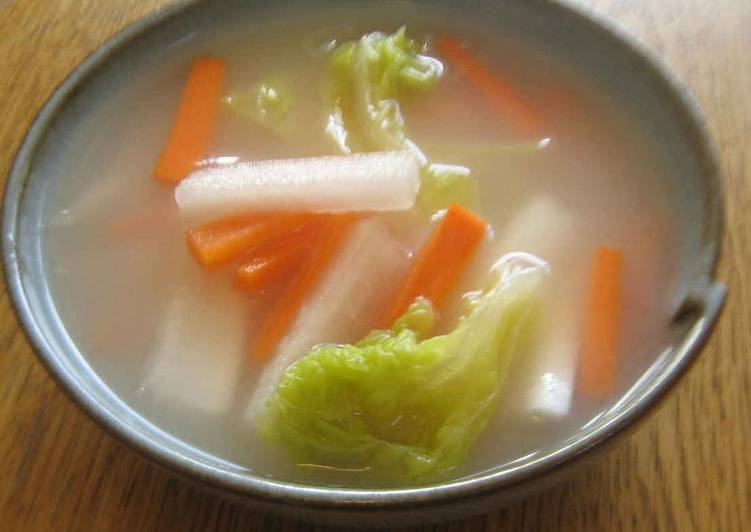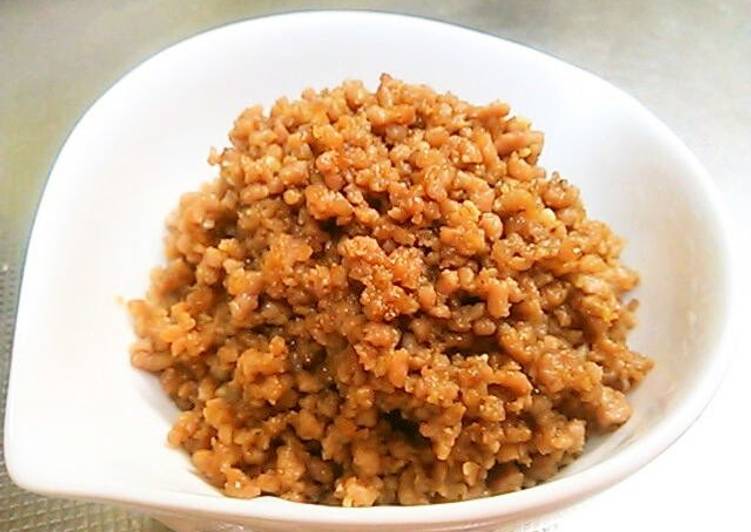
Hey everyone, it is me again, Dan, welcome to our recipe site. Today, I’m gonna show you how to make a special dish, divine mul (water) kimchi made with water from rinsing rice. One of my favorites food recipes. This time, I am going to make it a little bit tasty. This will be really delicious.
Divine Mul (Water) Kimchi Made with Water from Rinsing Rice is one of the most popular of current trending foods on earth. It is appreciated by millions every day. It is simple, it is quick, it tastes yummy. They are nice and they look fantastic. Divine Mul (Water) Kimchi Made with Water from Rinsing Rice is something that I’ve loved my whole life.
Korean Water Kimchi (Mul Kimchi) is a wonderfully cooling summer kimchi made with radishes in slightly sweet brine. Water kimchi is a refreshing side dish for the summer. During the hot days, this Mul kimchi will taste great and cool you down.
To get started with this recipe, we must prepare a few components. You can cook divine mul (water) kimchi made with water from rinsing rice using 8 ingredients and 9 steps. Here is how you can achieve that.
The ingredients needed to make Divine Mul (Water) Kimchi Made with Water from Rinsing Rice:
- Make ready 400 ml The rinsing water from rice
- Prepare 1 1/2 tsp Salt
- Make ready 1 tsp Sugar
- Get 1 thumbtip's worth Ginger (finely julienned)
- Prepare 1 Vegetables (to pickle)
- Make ready 3 leaves + 10 cm + 5 cm WInter Version 1) Chinese cabbage + daikon radish + carrot
- Get 4 leaves + 1/2 WInter Version 2) Chinese cabbage + apple
- Make ready 2 leaves + 1 + 5 cm Summer Version) Cucumber + celery + carrot
The kimchi is often prepared in late (Korean) fall or early winter using. Nabak kimchi is a type of water kimchi that's made with thinly sliced radish squares and other vegetables. It is easy to make, yet deliciously refreshing! It's also a traditional holiday kimchi.
Instructions to make Divine Mul (Water) Kimchi Made with Water from Rinsing Rice:
- Prepare the rinsing water from rice. To rinse the rice, first fill a container with rice, add water, then immediately drain.
- Next, fill it with water again, then set aside a little over 2 cups of the drained water Make sure the water has a thick-looking, opaque whiteness.
- Put the rinsing water from the rice in a sauce pan, add the finely julienned ginger, salt, and sugar, then heat over high. Turn off the heat once it comes to a boil.
- Prepare the vegetables. For example, cut the daikon radish into matchsticks, the carrots into thin matchsticks. For the Chinese cabbage, separate the stalk from the leaves, and chop the stalk into 5 cm long, 1 cm wide pieces, and the leaves into 5 cm wide pieces.
- Put the vegetables into the sauce pan from Step 3 while it's still hot Once it cools down, stir, then lightly cover in plastic wrap. Let it stand for about 1/2 day at room temperature.
- After about 1/2 day, it will produce lactic acid, and will become slightly acidic Give it a taste test If it's the right amount of salt, then it's done.
- If the vegetables are still hard, or if there's hardly any acidity, and only saltiness, let it sit a little longer.
- After it's done pickling, store it in the refrigerator. It will last for about 2 days. Serve it in plenty of the liquid. Drink it up together with the vegetables. Your body will enjoy the nutrients from the rinsing water, too.
- In the winter, use vegetables such as daikon radish, Chinese cabbage, carrots, and turnips. Add some apples to make it even tastier. In the spring, try cabbage and Japanese parsley, and in the summer, I recommend cucumbers and watermelon. Add Japanese pears in the fall.
Growing up, we always had nabak kimchi with tteokguk (rice cake soup), which is a New Year soup. Mul Kim-chi Water Cabbage Kimchi 물김치. Another common Mul Kimchi (water kimchi) is Dong-chi-mi. Nabak Kimchi is a little more elaborate. It usually includes radish and napa cabbages along with other secondary ingredients like minari (water dropworts), chili peppers, cucumbers and carrots.
So that’s going to wrap it up with this exceptional food divine mul (water) kimchi made with water from rinsing rice recipe. Thank you very much for your time. I’m confident that you can make this at home. There’s gonna be more interesting food at home recipes coming up. Remember to save this page in your browser, and share it to your family, friends and colleague. Thank you for reading. Go on get cooking!


